On the face of it, the West Indies’ latest Test series was very much like most of those that have gone before.
The 2-0 outcome was the same as those in India last November and at home against Australia in April. The margins of five and nine wickets before the supposed English summer rendered the last match all but meaningless were little different.
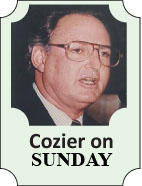
Captain Darren Sammy’s summation of the problems was self-evident and familiar.
“We were competitive against Australia and should have won but at crucial moments, we faltered and crumbled – and that’s what happened again in England,” he said.
“We were competitive but we didn’t compete for long enough over an extended period of time and hence we lost 2-0.”
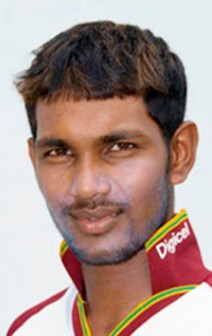
His follow-ups (such as “if you subtract the sessions when we were really bad, we were up there competing” and “we scored over 320 in each Test with our top-order not contributing”) have become common refrains but cannot disguise the continuing, and understandable, frustration he shares with his public.
There were, to be sure, some “positives” (to use the modern jargon favoured by cricket captains) but they were counter-balanced by the “negatives” (not favoured by captains).
The positives were provided primarily by Marlon Samuels. The hundreds by Sammy himself and Denesh Ramdhin (until besmirched by his outrageous, self-centred, defiant answer to Sir Viv Richards), both in record partnerships at difficult times, the pace of Kemar Roach (before injury ended his involvement), the control of Ravi Rampaul and, as always, the reliability of Shivnarine Chanderpaul were satisfying points but Samuels was the standout as obvious Man of the Series.
It was not the first time the Jamaican’s talent was seen to advantage but it had been too spasmodic for selectors and fans.
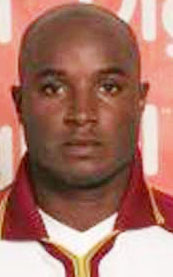
It was there on debut in Australia in 2000-10, in India four years later and against in South Africa in 2007-2008 when he was stopped in his tracks by the ICC’s two-year suspension for his vague involvement with an Indian bookmaker.
That might have signaled the end for another underachieving West Indian player, remembered as much for his part in the run out of Brian Lara in his last international innings in the 2007 World Cup as his own record.
Samuels kept insisting he would be back to make up for the lost years. He took some time to stick to his word, needing preparation in series against Pakistan, India, Bangladesh and Australia before his unforgettable batting over the past month.
Maturity seems to have finally come at the age of 31. He has an important role for several years to come.
Then there was Tino Best. So pumped up for his return to the West Indies team he could burst, he wasn’t going to let even the sodden, freezing English weather spoil what he called his cricketing “rebirth”.
His 95 at No.11 in the two-day Edgbaston Test was not only an unbelievable record; it was one of the highlights of the series. Sammy said his last wicket stand of 148 with Ramdin typified the team’s “never-say-die attitude”.
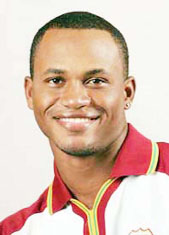
And, in the brief time available, his pace and control proved that, at 30, he was no spent force but a more resourceful bowler than in his headstrong heyday.
It does not guarantee him a place in the 11 from here on but it offers another feasible option for the selectors, especially given the injuries that seem to increasingly afflict fast bowlers of every nationality. In that regard, the loss of the big Trinidadian Shannon Gabriel after a promising debut Test and Roach were worrying setbacks.
Top of the list of negatives, obliquely identified by Sammy, was the dearth of runs from the top order, especially from Kirk Edwards and Darren Bravo, who both enjoyed such productive earlier series in Bangladesh and India.
Edwards filled the No.3 breach left when Ramnaresh Sarwan’s dip in form cost him his place and led to his latest tirade at the team’s management and his self-imposed exile to Leicestershire in the second division of the English county championship.
He started with a hundred on debut against India, followed up with a second against Bangladesh and four half-centuries. He began the tour with an average of 50.53; by the end, his six innings without reaching double-figures meant his confidence had been shot.
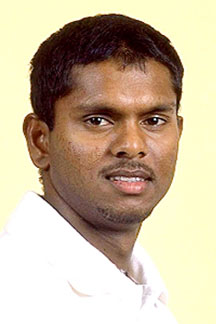
Bravo, the elegant left-hander in the mould of his celebrated relation Brian Lara, arrived in England with even greater expectations that Edwards.
Here, according to Steve Waugh, was “cricket’s next superstar, no doubt”. Based on his effortless style, as much as an average of just under 50 and his three hundreds in five Tests in Bangladesh and India, Waugh’s was not fanciful hyperbole.
A top score in his five innings and an average of 16.2 was clearly inadequate but, still only 24, significant only as a learning experience for happier days that indisputably lie ahead.
It has become a certainty that no West Indies series can pass without the accompaniment of some unwanted, often unwarranted, controversy.
While the Chris Gale saga was coming to its overdue end, the unwanted and unnecessary debate over the absence of Ramnaresh Sarwan and Jerome Taylor took its place.
Such distractions won’t end until the team turns competing into winning again. The coming home series against New Zealand, opponents ranked on the same lowly level by the ICC, presents the chance and, at the same time, the challenge.
There is no one I can think of more deserving than Wes Hall of his recognition as a Knight Bachelor of the Order of St. Michael, bestowed on him on behalf of the people of Barbados on Friday by Queen Elizabeth II, still its titular head of state.
He was, first and foremost, one of the West Indies’ finest fast bowlers but, beyond that, an ambassador for the region and its people, as popular and admired everywhere the game is played as any cricketer in my experience.
He also served West Indies cricket as selector, manager and, eventually, president of the board until ill health forced his retirement. He worked diligently for the betterment of Barbados during his many years in parliament, several as a government minister, and, during his time in Trinidad in the 1970s, was a driving force behind the formation of Wes Hall Youth League and the self-help organization, Servol.
He has spent his later years serving his God and, through him, his community as a pastor in the Pentecostal Church.
As humbly as he will accept his honour, Reverned Sir Wesley Winfield Hall has a fitting ring to it.





